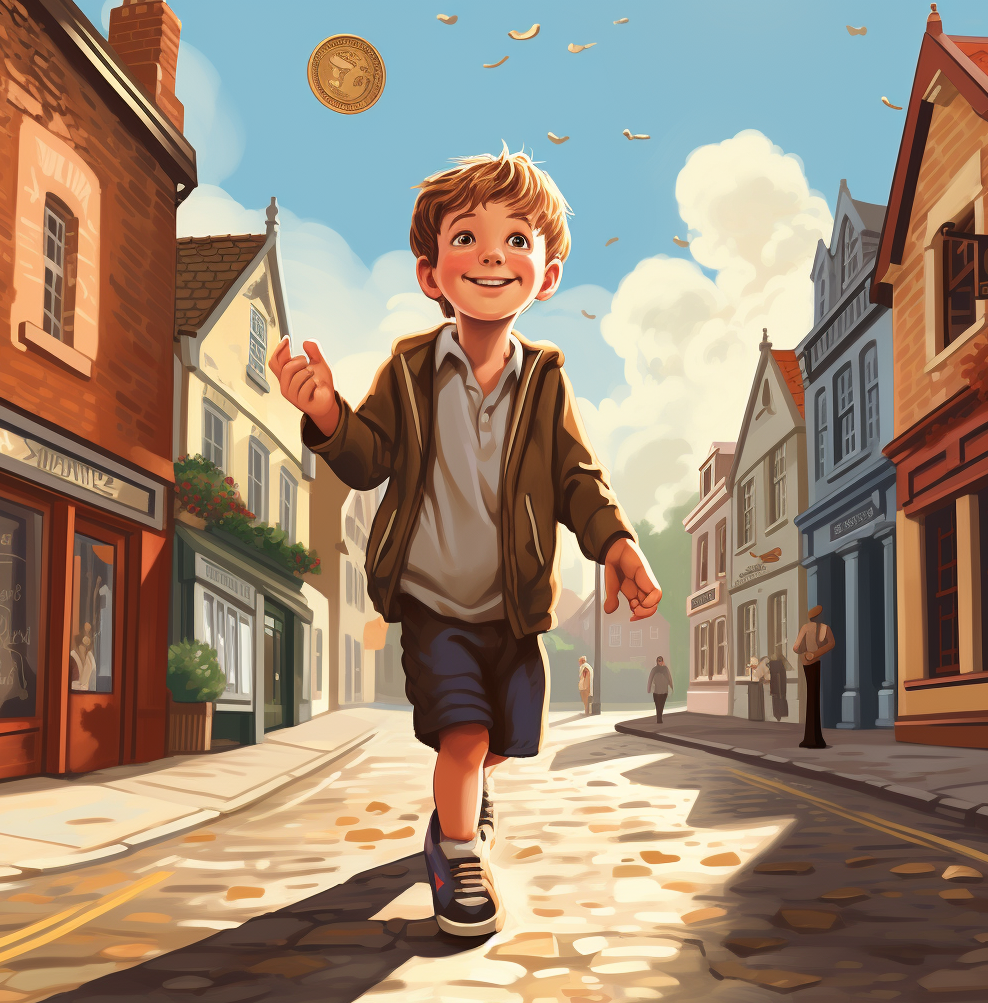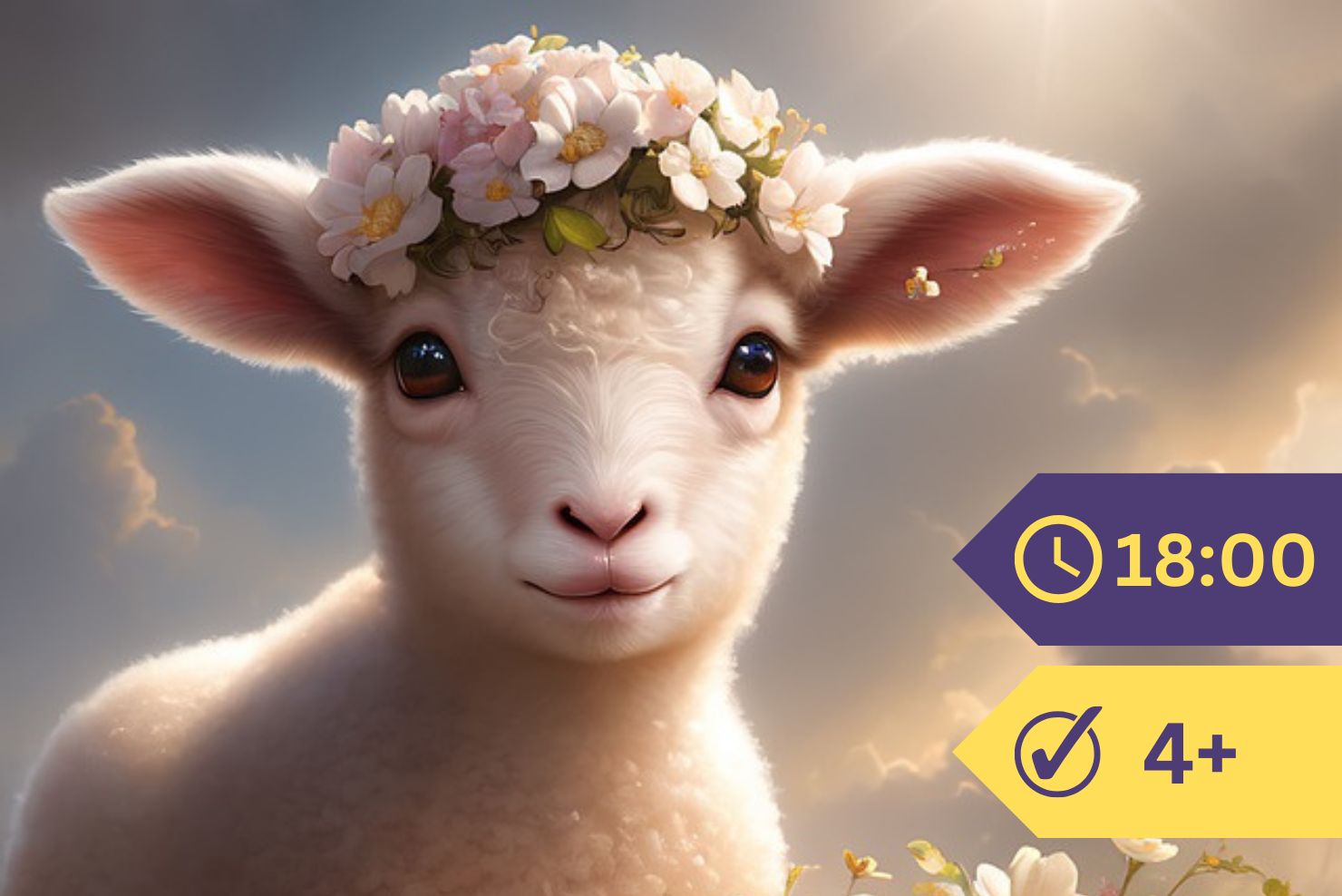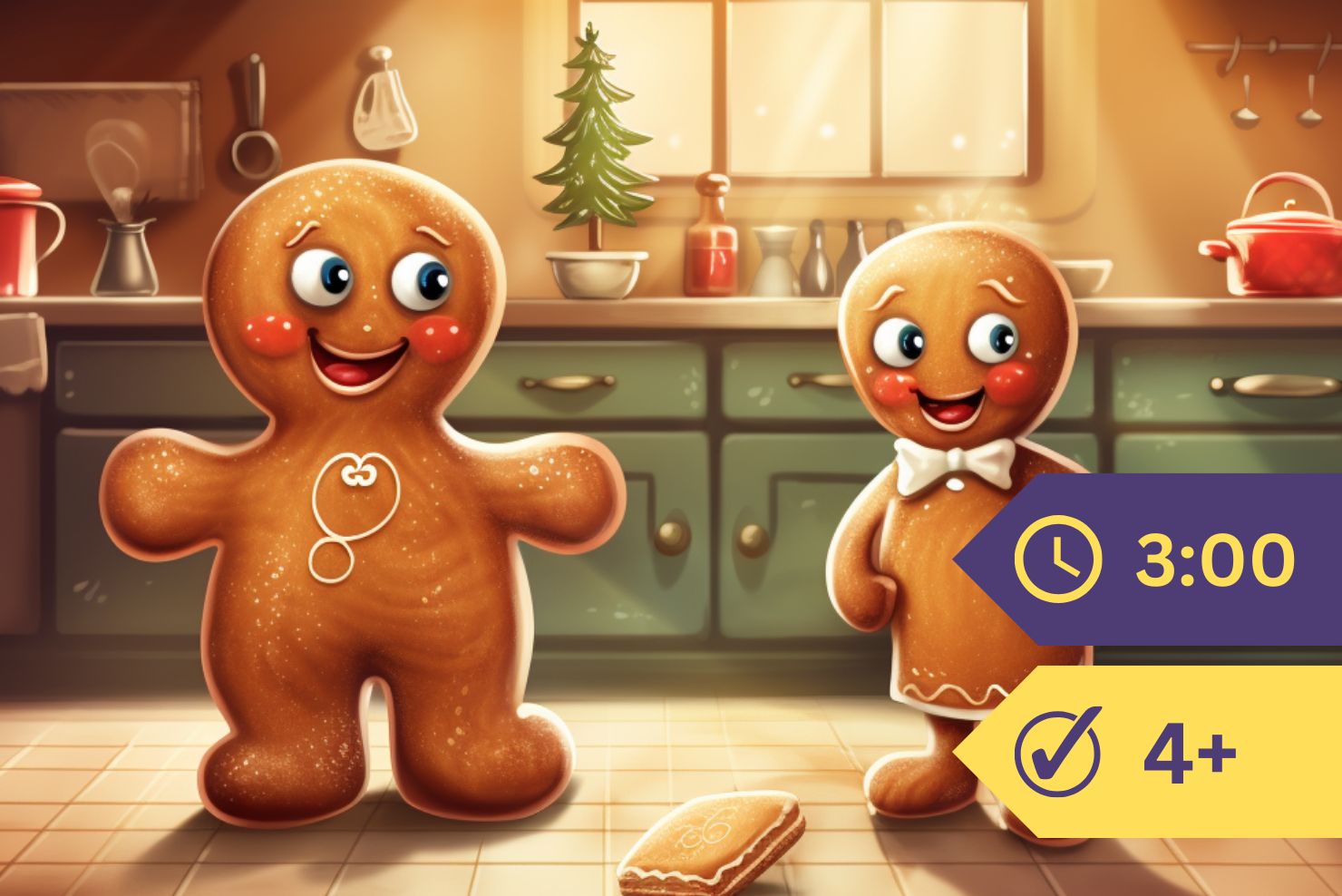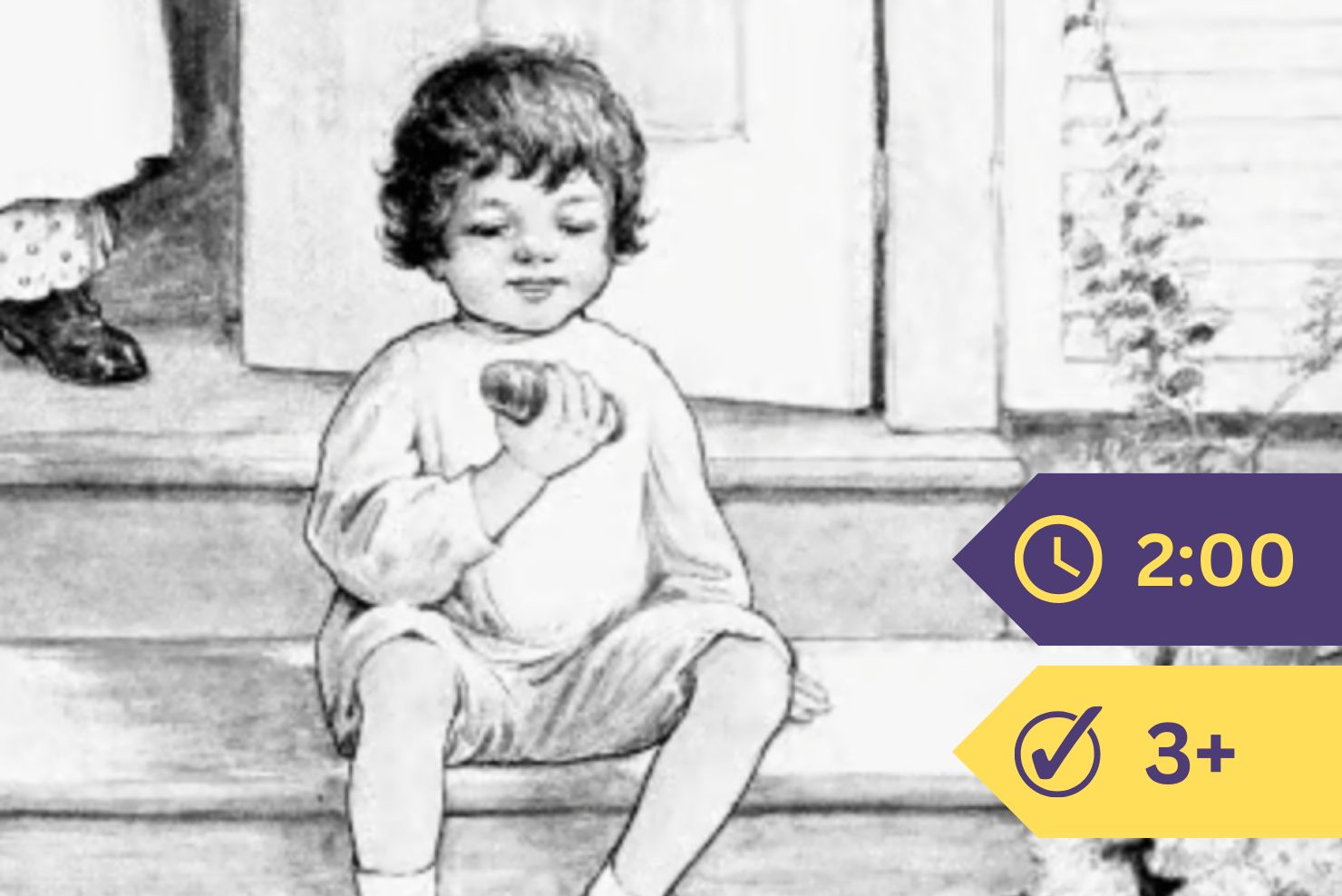Once upon a time there was a little boy who went to buy some nails for his father, and while he was waiting for the storekeeper to wrap them up, he saw in the window a little red hatchet.
“If I had a little red hatchet,” thought the little boy, “I could pound nails and split boards, and perhaps I could build myself a little house,” and he asked the storekeeper the price of the hatchet.
“Just as many pennies as you have fingers on your hands, or toes on your feet,” said the man.
“Oh!” said the little boy, and as soon as he went out of the store he counted his fingers. “One, two, three, four, five, six, seven, eight, nine, ten.” He could not count his toes then, for he had on his shoes and stockings, but he remembered to do it when he undressed that night; and he had just as many toes as he had fingers. The little red hatchet cost ten pennies. “If I had ten pennies,” he said to his mother, “I know what I should do. I should buy me a little red hatchet.”
“How nice that would be,” said his mother; “and where would you get it?”
“From the storekeeper,” said he; “and I could pound nails and split boards and build houses. I wish I had one.”
“So do I,” said his mother; “but now you must go to sleep, for to-morrow is your birthday, and you will want to be up with the sun.”
The sun was up before the little boy, though, and so was his mother. She was sitting on the bed when he waked up, and on the table, close by the bed, were—what do you think? Ten pennies, all in a row.
“Now you can buy the little red hatchet,” said his mother, giving him a birthday kiss.

“Yes, now I can buy the little red hatchet,” said the little boy; and he could scarcely wait to dress and eat his breakfast before he started out to the store. The ten pennies were in his pocket and they jingled merrily as the little boy ran down the road. “Ten of us are here! Ten of us are here!”—this is what they seemed to say, and the boy laughed to hear them.
“Perhaps I’ll cut down a tree with my little red hatchet,” he thought, as he ran.
It was early in the morning when he reached the town, but the stores were open, and the men who sold things on the street were already calling their wares. One was a ragman. “Rags, rags!” he called. Another was a pieman. He had his good things in a cart that he pushed before him. There were fresh raspberry tarts in his cart that day, and every now and then he called:—
“Tarts, tarts, raspberry tarts! A tart for a penny and a penny for a tart. Tarts, tarts, raspberry tarts! « 58 »A tart for a penny and a penny for a tart!” The little boy stopped to listen. “Tarts, tarts, raspberry tarts!” Oh, how delicious they looked—those penny tarts in the pieman’s cart!
“Will you have a tart, little master?” asked the pieman.
The little boy put his hand in his pocket and drew it out; then he put it back and drew it out again. This time a penny came with it. “Yes, if you please,” he said to the pieman. “I want a raspberry tart.” A nice, sweet, juicy three-cornered raspberry tart! The little boy had eaten every crumb of it when he came to the store where the little red hatchet lay in the window.

As soon as he saw the hatchet he put his hand into his pocket again and jingled his pennies. “One of us is gone! One of us is gone!” said the pennies as plainly as they could; but the little boy sat down on the edge of the sidewalk and counted them. “One, two, three, four, five, six, seven, eight, nine.” Then he went into the store. The man who had told him the price of the hatchet was not there, but a clerk came to wait on him.
“Are there any nine-penny hatchets?” asked the little boy.
“No,” said the clerk; “all the little hatchets are ten cents, and cheap at that. Would you like one to-day?” But the little boy shook his head and went out of the store. The pennies did not jingle in his pocket, and his eyes were full of tears. He was just getting his handkerchief out to wipe them away when he met an old woman.
“Why are you crying, little boy?” asked she; and her voice was so kind and her smile so pleasant that the little boy told her all about it.
“Dear me,” said she, when he had finished; “I should not be surprised if you were the little boy for whom I am looking.”
“Were you looking for a little boy six years old?” asked the child.
“Oh, yes, indeed,” said the old woman; “and I want him to pick up a pennyworth of chips for me.”
When the little boy heard this he knew that he must be the boy she wanted.
“I am six years old to-day,” he said, “and I can pick up chips. I pick them up for my mother, and when I get my little red hatchet I am going to split kindling for her, too.”
Then the old woman led the way to her house and gave the little boy a basket and showed him where the woodpile was. The wood chopper had been there with his sharp axe, and the chips were strewn about the yard. The little boy set to work with a will, and when he had filled the basket so full that not another chip would stay in, he took it to the old woman.
“Is this a pennyworth of chips?” he asked.
“Yes, and good measure,” answered the old woman, and she took a bright new penny out of her bag and gave it to the little boy. “Good-by, and good fortune,” she said; and the little boy wished her the same before he ran through the gate toward the town.
Oh, how swiftly his feet pattered down the road, and, oh, how merrily the pennies jingled in his pocket! “Ten of us again! Ten of us again!” This is what they seemed to say now, and the little boy laughed to hear them as he ran past the ragman with his bag, past the pieman with his tarts, straight to the store where the little red hatchet still lay in the window.
“If you please, I want a little red hatchet,” he said; and he counted his pennies out on the counter, ten of them in a row.
“Just as many pennies as you have fingers on your hands, or toes on your feet,” said the man, who had come in to the store again; and he wrapped the little red hatchet in a piece of brown paper and gave it to the child.
It was a good little hatchet, and the little boy pounded nails and split boards and cut his mother’s kindling with it; but whether he ever built a house or cut down a tree I cannot tell you, for I do not know myself.







